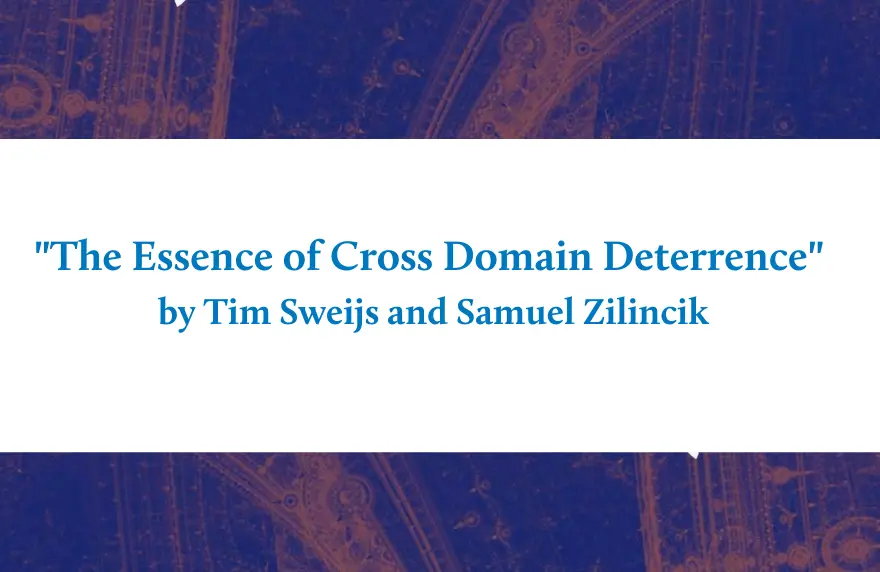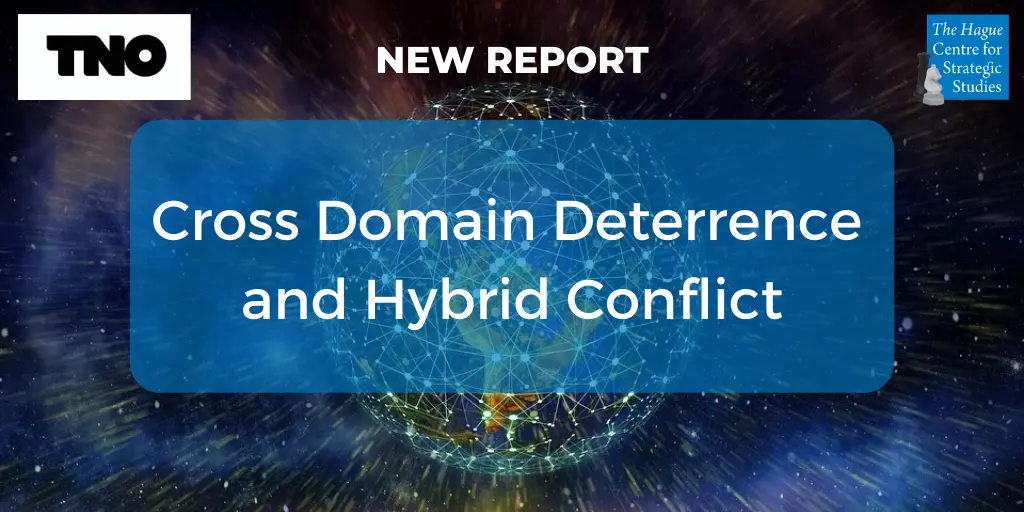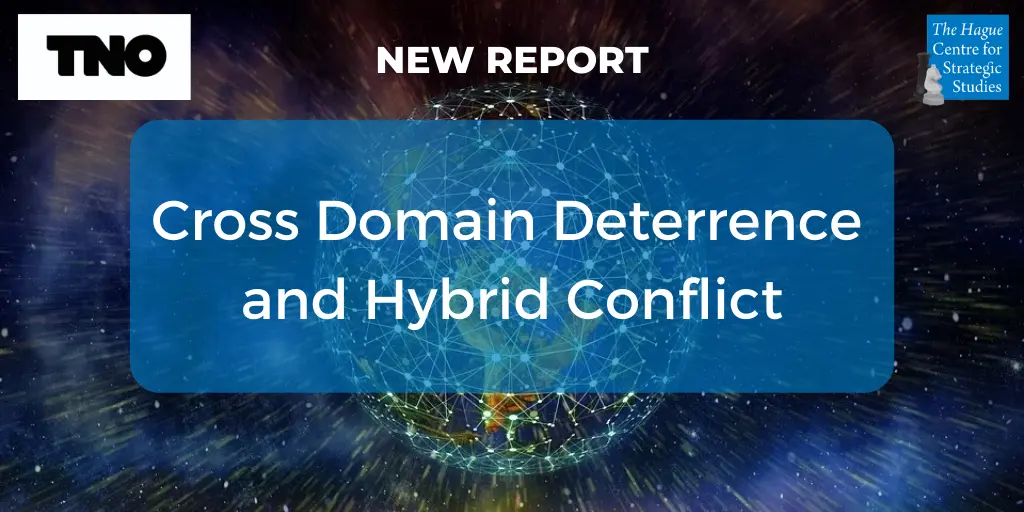Deterrence is not only about stopping a nuclear bomb. It’s about shaping your opponent’s behavior. We need new concepts for Cross Domain Deterrence (CDD) to address today’s challenges. Read all about it in a piece by Tim Sweijs & Samuel Zilincik on the Essence of Cross Domain Deterrence.
Deterrence is about convincing adversaries to refrain from certain behaviour through the prospect of costs that outweigh the benefits. Deterrence has been a central tenet of strategic practice throughout history, even if its logic was only clearly articulated in the aftermath of the Second World War. Deterrence scholarship has since then evolved in four consecutive waves. The first, second and third wave of the deterrence literature, which emerged during the Cold War, tended to almost exclusively focus on deterrence of high-intensity aggression including most importantly the possible use of nuclear weapons alongside large scale conventional invasion. Lower-intensity threats which were considered mere nuisances were largely left outside of the scope of investigation.
However, these became more important in the 1990s with the demise of the Soviet Union and the emergence of non-traditional threats such as terrorism. This gave birth to the fourth wave of deterrence literature that focused on the question whether deterrence would work against such threats that emerged in the 1990s and 2000s. Over the past decade, a new body of ideas has been emerging concerning the application of deterrence in today’s strategic environment.
An important characteristic of our age is the proliferation of ways and means by which hostile activities can be perpetrated. Accordingly, strategists have started to pay more attention to the application of deterrence in new domains and to cross domain deterrence (CDD), across both traditional and new domains. This chapter appraises the contribution of the emerging body of cross domain deterrence literature to deterrence theory and deterrence practice. It situates CDD in the context of today’s challenges and identifies the prerequisites for the use and utility of CDD. It finds that one strand of the emerging body of literature predominantly focuses on practical and technical prerequisites in order for CDD to be effective, leaving the framework of traditional deterrence theory intact. It also finds a second strand that holds that the nature of today’s challenges requires more than mere innovation in application. The ideas about deterrence proposed by this second strand are expanding on common understandings of deterrence to the extent that deterrence is no longer only about fear nor about convincing opponents to refrain from certain behaviour. The conclusion summarises the findings and elaborates their implications for theory and practice.
Tim Sweijs and Samuel Zilincik
Access the chapter here: https://link.springer.com/chapter/10.1007/978-94-6265-419-8_8






